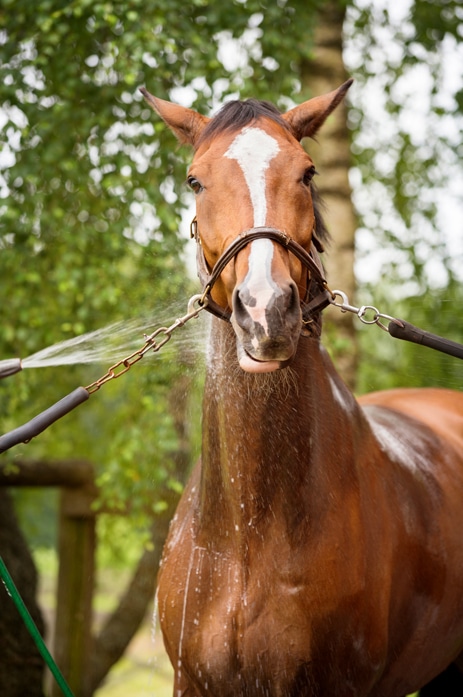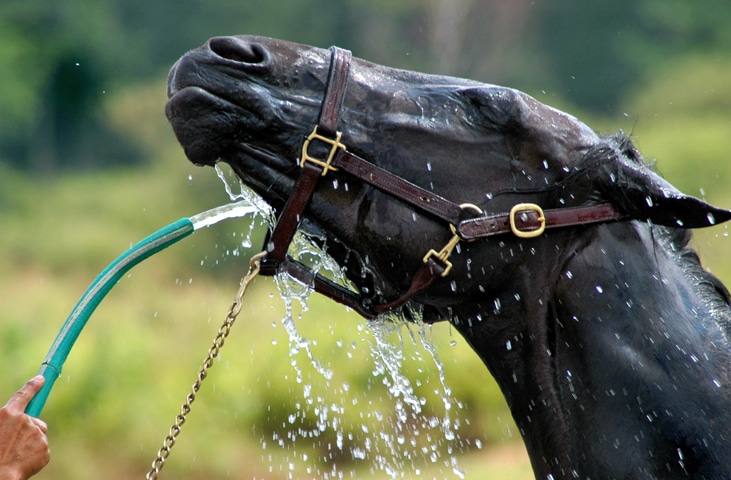DR DAVID MARLIN is an equine scientist with over 30 years’ experience in physiology and biochemistry. He’s worked with the FEI and International Olympic Committee and is recognised as an authority on equine welfare.
How can I tell if my horse is too hot?
Horses that are very hot are hot to touch. They are likely to be covered in sweat and have prominent veins on the skin. They will be blowing (laboured deep breathing), or panting (fast, shallow breathing), have flared nostrils, and be depressed or overly excited and unsteady on their feet (ataxic). These horses need rapid cooling.
Rapid cooling should be done by covering as much of the horse’s body with as much cool (15-25°C) or cold (less than 15°C) water as quickly as possible without stopping to scrape. The colder the water the less you will have to use and the quicker the horse will cool. This should be done continuously for at least several minutes. If the horse is agitated or appears to be recovering they can be given a short (10 second) walk before several more minutes of intensive cooling, but avoid turning on tight circles as they may be ‘wobbly’ when very hot.
This should be continued until the horse’s blowing has subsided and/or the horse appears more comfortable, which may take 10 to 15 minutes of cooling. If shade or fans are available these can be used, but cooling with water all over is the priority. Do not rely on cooling blankets or rugs, evaporative coolers or fans, or ice packs placed over large veins as the main means of cooling. These provide comfort but not rapid cooling.

Should I scrape water off after hosing?
When we pour cold water on a hot horse, thermal imaging shows that there’s a rapid transfer of heat from the horse’s body to the water. But as we scrape, the imaging shows us that the horse’s surface increases in temperature, so we’re actually warming the horse up when we remove water by scraping.
While the water is cooler than the horse it is removing heat. Water never insulates or slows down cooling. So the bottom line is if you want to cool a horse down quickly, definitely do not scrape. Just keep pouring water all over their body.
If you are planning to compete in the heat, consider whether your horse is prepared. Unless you have been training in the heat for at least two weeks your horse will not be full acclimatised. Even with acclimatised horses at the Olympics, the cross country is shortened in hot weather as horses cannot do the same work in the heat as they can in cool conditions.
If your horse is uncomfortable in hot weather in the stable or paddock, spraying them down and leaving the water to evaporate will help keep them cool and can be done every few hours. I promise your horse will not overheat due to insulation by water – this is a complete myth, and neither does rapid cooling/cold water increase the risk of colic, cause muscle damage, kidney damage, laminitis, or any other health issues.
For information on a range of horse welfare issues, visit Dr Marlin’s website.



